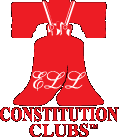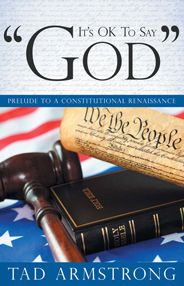6 Oct 2010
It’s not Just a Metaphor
© St. Louis Post-Dispatch
Tad Armstrong
Christians should be wary of an attempt to nullify the separation of church and state.
If some Christians’ ongoing assault upon the “wall of separation” between church and state is ever successful, Christianity, ironically, could be the first victim of the free range.
One demolition expert recently admonished me to tell my students that the “wall of separation” phrase does not appear in the Constitution. He was referring to the phrase plucked by the Supreme Court out of a Thomas Jefferson letter that likened the first amendment’s prohibition of Congress (1) from making any “law respecting an establishment of religion” and (2) from making any law “prohibiting the free exercise” of religion to the building of a “wall of separation between church and state.”
The absence of a metaphor does not negate an intended principle any more than the absence of a prohibition against human sacrifice suggests a form of protected religious ritual.
David Barton has gained popularity as a Christian historian. I don’t purport to know his entire body of work, but I have seen his video tour of the Capitol. It is alarming because its misleading message could well spark fires fueled by red hot coals of ignorance.
Rev. Barton displays a Bible printed by Congress in 1782 and states: “The first Bible printed in English in America was done by the guys who signed the documents – endorsed by Congress and done for the use of schools and we’re going to be told that they don’t want any kind of religion in education – they don’t want voluntary prayer – no, it doesn’t make sense…”
Done “by the guys that signed the documents”? What documents? The only Congress he can be speaking of in 1782 was the Confederation Congress, for the Constitution wasn’t written until 1787. Was this a reference to the “guys” that signed the Declaration of Independence? The Declaration was signed by 56 men, only 19 of whom were in the Confederation Congress, also comprised of 56 men and only five of the 39 “guys” that signed the Constitution had been in the Confederation Congress.
Worse than that, nothing prohibited Congress from establishing a national church, much less a national religion, or from publishing a Bible in 1782. Rev. Barton well knows that the first amendment was not ratified until 1791.
He waxes incredulously when he says, “We’re going to be told that they don’t want any kind of religion in education – they don’t want voluntary prayer. No, it doesn’t make sense.”
It is unclear, perhaps intentionally so, who he means by “they.” The omission leaves the listener with no way to check the source and, therefore, with the distinct impression that government has said “they don’t want any kind of religion in education” and “they don’t want voluntary prayer,” presumably in reference to public grade schools.
He cannot be referring to Congress or to the Supreme Court because “they” have never said any such thing. To the contrary, per Justice Clark: “The Bible is worthy of study for its literary and historic qualities.” And, per Justice Brennan: “Today’s holding does not foreclose teaching about the Holy Scriptures or about comparative religion in literature or history. Any attempt to use rigid limits upon the mere mention of God or references to the Bible would be fraught with dangers.” Justice Stevens said that “nothing in the Constitution…prohibits public school students from voluntarily praying at any time before, during or after the school day.”
It seems that some would mislead us into thinking that the separation adopted by the Court is necessarily hostile (as opposed to neutral) towards religion. While that is clearly not true, nevertheless, most would not trust their child’s religious training to government, right? How about legislation requiring the tenets of the Hindu faith or the Church of Scientology or Islam or the Ten Commandments to be hung on public school walls? Does any of this lead to the conclusion that a wall or hedge or short fence or line in the sand may, perhaps, be a good idea? I suggest you choose the metaphor that best fits your taste and hold on to it, for its demise would likely be accompanied by government in your pulpit, in your purse, in your face. Did I fail to mention, bloodshed unlike this Country has never known in the realm of religion? In addition, if and when your school board’s majority is of a faith other than your own, you will learn what it is like to be in the minority and will appreciate the limitations our Constitution provides all the more.

Comments











So if I understand, you are stating that the First Admendment to US Constitution doesn’t state that the US Government won’t ever support a one religion for the country? I totally disagree with the school boards stating that students cannot have a prayer time. I remember a number of times before High School asking God for the strength to get through the day and to keep me focused during test taking. If Congress can open each day with a prayer why not our schools?
Thank you so much, Judge. Where was your court?
Accurate, fair and well-said. The job of a lawyer is to persuade without being offensive. Would have enjoyed listening to you argue when I was on the bench